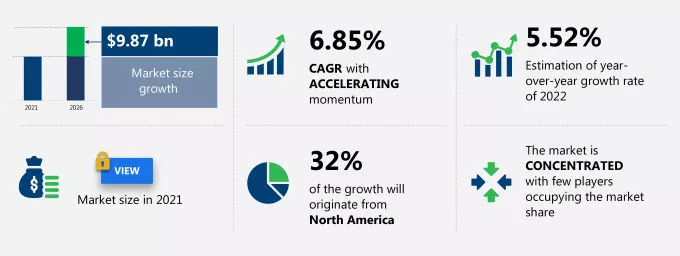Selecting music genres and acts is the most critical step in producing live events. While music is universal, specific music genre preferences vary greatly by different demographic characteristics. Those preferences also change over time for demographic groups. Whether you are an artist, promoter, venue owner, or festival organizer, understanding those music genre preferences is essential to marketing music or events with music.
Everyone has their favorite music and artists. Music preferences are reflected in streaming playlists, the radio stations listened to, songs and albums bought or downloaded, or the concert or festivals attended.
Those that organize events or release music must understand the relationship between music and specific audiences. Are those targeted already a fan of the genre or artists involved or are you attempting to expose them to a new artist or genre of music? Those organizing mixed-genre events need to find the right balance that fits their existing customer profiles as well as enticing new customers to their music events.
The Music Industry is Big Business
Music consumption from streaming platforms and live events grew in 2022. Yearly U.S. on-demand streaming surpassed 1 trillion streams for the first time. Americans are back attending live events. The live event industry as a whole is dealing with inflation and supply chain problems so many of today’s tours have scaled back somewhat on production values compared to pre-Covid shows. Big acts continue to add elements to their shows to make them better than the last tour.
Live Nation reported 12,500 shows in the second quarter of 2022 alone, up more than 25 percent from 2019, before the Covid pandemic. Attendance was up as well with a 20 percent increase from 2019’s attendance level. “Momentum across our business has remained strong in recent months and weeks, and demand combined with a substantial concert pipeline gives us confidence in our ongoing growth this year and into 2023,” LiveNation said in an August press release.
Ticket sales for concerts and live events are soaring due to increasing consumer demand, the Wall Street Journal reports. Fans are also willing to pay more for a better event experience. They want better seats, better views of the stage, VIP upgrades, and an overall better concert experience. Fans’ willingness to pay for a better experience has led to more aggressive ticket pricing.

The live music market share is forecast to increase by a compound annual growth rate of 6.85 % from 2021 to 2026, reaching $ 9.87 billion. Some estimates have the live industry already at $9.5 billion with 80 percent of live revenue coming directly from ticket sales while merchandise and sponsorships generate the other 20 percent.
Concert and Festival Music Genre Selection
According to pre-pandemic reporting by Nielsen Research on major festival attendees, the musical lineup is the top consideration for festival fans when deciding on which events to attend. Price and proximity are also significant factors.
The selection of acts for any concert or festival becomes the biggest single driver of who will attend the event. The targeted audience you seek will be associated with the specific music genres or artists you book for the event. Finding the right mix of music genres and artists will be key for a mixed-genre event in attracting the level of fan interest you want.
It’s important to remember that streaming and live events are two different experiences. Be careful not to let streaming data alone dictate genres and demographics. A person’s preference for music listened to in private in a digital format may be very different from the preferred genres for live events like concerts or music festivals.
Those attending live music events prefer more up-tempo genres. The most popular music festival genres can be quite different. Pop, Rock, and EDM still dominate mixed genre festivals despite fan preference for Hip Hop and R&B for digital music preferences. There’s still a heavy emphasis on Pop and EDM and genre-specific festivals continue selecting EDM dance music with Hip Hop relegated to smaller minority events.
Demographics Key in Selecting Music Genres
Data suggests that festival attendees who prefer Pop, Rock, and EDM are older and more likely to have a higher disposable income. With costs rising for major festivals, it’s important that festival organizers attract people who can afford higher prices. Most teenagers cannot afford major festival ticket prices, so promoters are not catering to their tastes in music genres. Whilst festival organizers have increased the percentage of Hip Hop and R&B genre artists in recent years it remains a restrained minority genre for most live music environments.
For multi-genre festivals, organizers look to data from the digital music world. According to research issued by Statista, the digital music preferences (when not restricted to a single choice) for consumers in the United States in 2022 shows the following:
-
-
- Rock / Alternative / Indie 42%
- Pop / Contemporary 36%
- Country 35%
- Hip Hop / R&B 33%
- Classic 26%
- Dance / EDM 23%
- Jazz / Blues 18%
- Folk 13%
-
However, when looking at a global perspective the numbers differ slightly :
-
-
- Pop / Contemporary 64%
- Rock /Alternative / Indie 57%
- Dance / EDM 32%
-
When you add the disposable income need as part of the equation, you can see why mixed-genre live music events choose POP, ROCK, and EDM as their genres of choice.
The process is much simpler for festival promoters who utilize only one music genre for their events. We are seeing more Hip-Hop festivals although EDM-focused festivals remain some of the largest, most popular, and growing genre-specific events.
On a global stage, Pop is still the dominant music genre, while in the U.S., Rock has been declining and Hip Hop has been rising. This trend has yet to be reflected in festival genre selection. This may change as the young people listening to Hip Hop get older and have more disposable income.
Why do I say that? Because some studies suggest that people’s openness to new music genres may decrease with age.
Do We Stop Exploring New Music at a Certain Age?
A recent survey in the UK by the streaming service Deezer gives us all something to think about. According to their findings, music listeners have a tendency to stop listening to new artists or genres and tend to stick to what they know at around the age of 30. Musical discovery peaks at around 24 in this study. While this is only one small study, it may explain why so many of us still prefer the music of our youth.
While the data are mixed on how much the personality trait; “Open to Experiences” changes over time, most studies show some decline. When it comes to music, many of us are stuck in time. We prefer the music that we were exposed to as pre-teens or teens. Seth Stephens-Davidowitz, a data scientist explained in The New York Times how the songs that were popular in our teenage years, particularly between the ages of 11 and 14, tend to remain our most streamed songs on Spotify. Once an Elvis fan, forever be an Elvis fan.
Does that mean that as Generation Z and Millennials age, the current music genres for older populations will be replaced by the music genres favored by today’s younger generation? Will older generations in the future be listening to HIP-HOP and R&B?
If so, live event organizers will be choosing those genres for their events. Stay tuned.
Related Post:
Concert Production: Do You Pick Your Audience or Do They Pick You?




